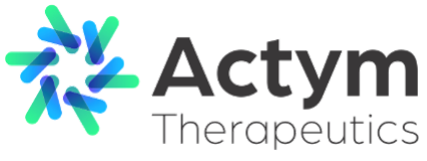Company Spotlight – Actym Therapeutics

Company Spotlight - Actym Therapeutics
Actym Therapeutics: A New Path to Immunotherapy
August 2021 – Unleashing the immune system against cancer, particularly T-cells, has been a tantalizing goal. Many patients have benefited from checkpoint inhibitors, CAR-T and other immunotherapies. Some may have even been “cured.”
But the vast majority of cancer patients are missing the immunotherapy revolution, prompting researchers to investigate immunotherapies that provide more widespread benefits.
Actym Therapeutics is helping lead the charge. Founded in 2017, the company is conducting preclinical development studies on its STACT (S. typhimurium-attenuated cancer therapy) platform to target and eliminate metastatic disease.
“We’ve been impressed by Actym’s STACT platform because it’s both systemic and localized,” said Alexis Ji, Ph.D., Partner at Illumina Ventures. “In other words, it’s administered systemically, which is ideal to tackle metastases, but homes in on tumors and avoids healthy tissues, to minimize side effects. Potentially, this approach could increase both efficacy and safety.”
Bacterial-Mediated Cancer Therapy
Cancer therapeutics companies have been eager to pursue new pathways to make immunotherapies more effective, but there’s a catch. Many of these are highly toxic and can only be administered intratumorally – virtually useless against metastatic disease.
The STACT platform uses a highly engineered bacteria to preferentially deliver therapeutic genes directly to tumor-resident, antigen-presenting cells. These encoded payloads generate a signal within tumors to both call T-cells into the tumors and arm them to attack.
“Many patients present with tumors that lack any lymphocyte infiltration, which is associated with poor prognosis,” said Actym co-founder and CEO Christopher Thanos, PhD. “Checkpoint antibodies and autologous T-cell therapies have minimal efficacy in this disease setting. The immunosuppressive nature of the tumor creates a hostile microenvironment that prevents T-cell access. You can see them under a microscope, sitting at the margins, like soldiers waiting to breach the gate, while the tumor grows uncontrolled. Clearly a different therapeutic approach is needed.”
To solve this problem, Thanos, Actym co-founder and Vice President of Research, Laura Glickman, PhD, and their team developed a simple therapy that is easy to manufacture and delivers complex payloads into tumor microenvironments without harming healthy tissues.
The Evolution of the STACT Platform
To create STACT, the first step was engineering bacteria to improve their safety and tolerability and eliminate their ability to infect epithelial cells. “We used scalpel-like approaches to edit the bacterial chromosome and scrape off all the red-alert signals that are peppered on its surface,” said Thanos.
For food, STACT relies on purines and their derivatives, which are highly concentrated in tumors and relatively absent in healthy cells. The tumors’ dysregulated immune response also helps the bacteria take hold and propagate. Then, the real work begins.
Macrophages and dendritic cells are phagocytic and eat pathogens. STACT bacteria have been engineered so that, once phagocytosis occurs, the bacteria are destroyed and their encoded payloads delivered to the macrophages, giving them new tools to modulate the tumor microenvironment.
“We want to activate type 1 interferon, and other powerful pathways, to recruit T-cells into these tumors,” said Glickman. “Our therapy also converts immunosuppressive, tumor-resident macrophages into incredibly powerful antitumor macrophages that prime and activate T-cells.”
“When those T cells are unleashed, it's amazing, they just obliterate tumors,” said Glickman. “And the best part is the cancer doesn't come back because memory CD8 T-cells continue to patrol. It gives us durable responses.”
In the Pipeline
Actym’s first therapy combines a cytokine with an engineered STING. This combined approach would be difficult to administer in any standard, systemic delivery format.
“Because the STACT platform has such tremendous tumor specificity, we can combine these immunomodulatory targets,” said Thanos. “We couldn’t even think about a systemic treatment that puts these components together without STACT-mediated delivery. It would just be too toxic.”
Looking beyond T-cell excluded tumors, the platform gives Actym great flexibility to pursue other immunomodulatory strategies. “There’s a high percentage of tumor types that lack any T-cell recognition at all. These so-called immune desert tumors are next on our list for STACT targeting,” said Glickman.
Next Steps
Actym projects to file its first investigational new drug application by the end of 2022. It could be used as a monotherapy, in conjunction with existing immunotherapies, or as an adjunct to chemotherapy. Most importantly, once the immune system gets primed, it has the potential to provide a long-lasting response.
“The STACT platform is feasible, scalable, and now codified,” said Thanos, “so that many additional payload combinations can be generated to produce new candidate therapies for high unmet need tumor types. Actym’s core mRNA and DNA delivery technologies have broad applications beyond immuno-oncology, such as prophylactic vaccines and infectious disease treatments.”